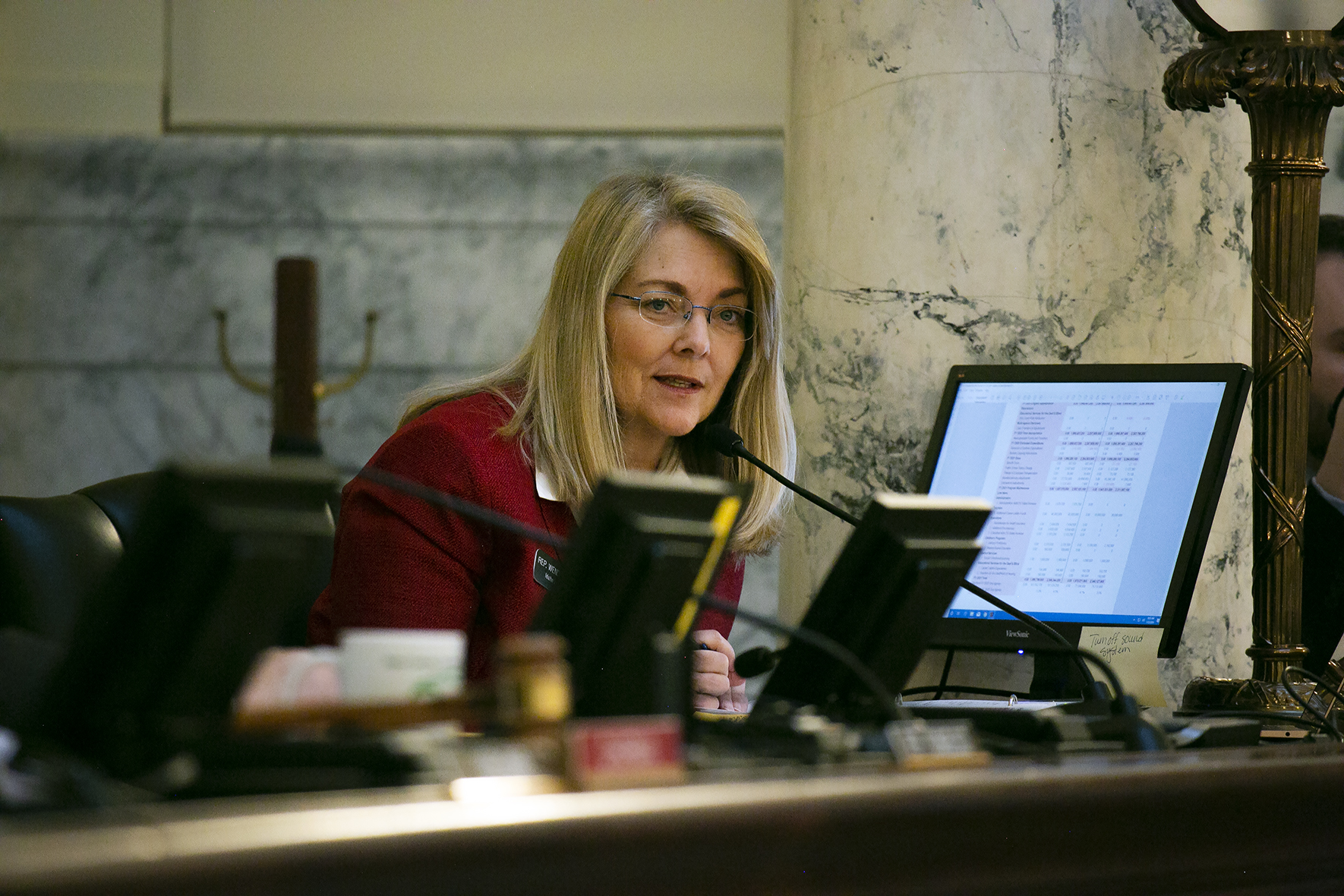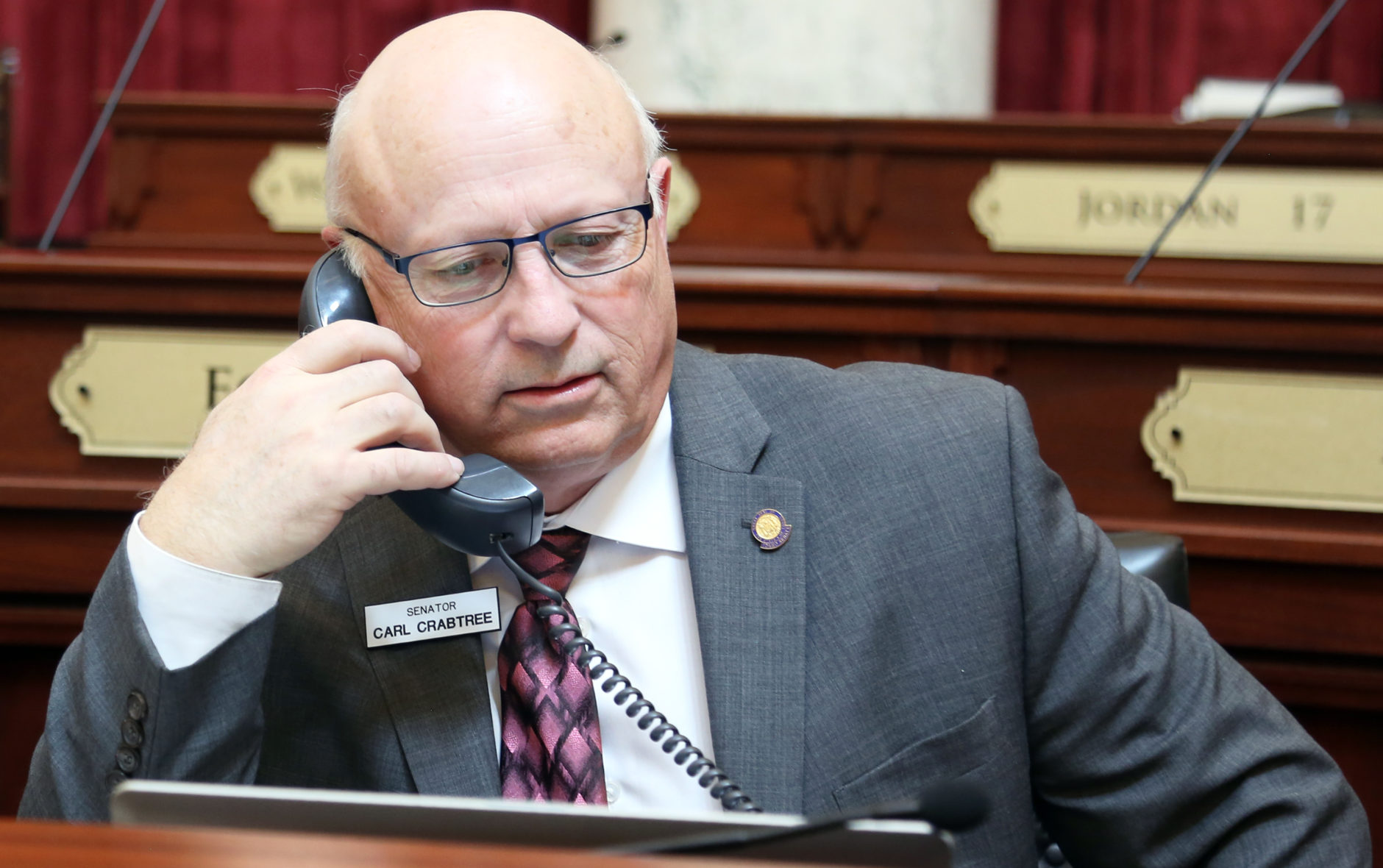(UPDATED, 12:42 p.m., May 29, to clarify details of a phone conversation between state superintendent Sherri Ybarra and State Treasurer Julie Ellsworth.)
It isn’t just about 18 employees and $2.7 million.
It’s about a constitutional office under siege.
At least that’s the narrative from Superintendent of Public Instruction Sherri Ybarra and Marilyn Whitney, Ybarra’s point person at the Legislature. In court documents filed last week (and posted on this page), Ybarra and Whitney submitted chronologies covering weeks of Statehouse meetings, sometimes multiple meetings a day. The timelines weave a cloak-and-dagger tale of legislators who are determined to dismantle and defund Ybarra’s State Department of Education.
It’s fascinating reading for political junkies.

On Feb. 19, Rep. Sally Toone, D-Gooding, tells Ybarra she doesn’t want to be seen talking to her about her budget — not at a reception, and not in the presence of Rep. Wendy Horman, R-Idaho Falls, an Ybarra adversary. In a Feb. 21 meeting, Sen. Carl Crabtree, R-Grangeville, says the $2.7 million shift is a done deal, and says it will do no good for Ybarra to “stomp her feet.” In an April 2 phone conversation, state Treasurer Julie Ellsworth passes along a tip to Ybarra: Horman and Crabtree are planning to carve out pieces of Ybarra’s budget “until the (superintendent’s) office no longer existed.”
The notes represent just one side of the story, but they show why Ybarra is doing a political capital cash burn, suing the Legislature and the State Board of Education over a plan to shift 18 IT and data management workers from SDE to the State Board.
The lawsuit, now before the Idaho Supreme Court, centers on an esoteric constitutional question: Is the state superintendent or the State Board Idaho’s education decisionmaker? But Ybarra is all but calling it a fight for political survival.
Horman and Crabtree are cast as recurring characters in the Ybarra-Whitney narrative. They orchestrated the shift of the 18 IT and data management positions. And they are playing a long game, Ybarra and Whitney say: As members of the Legislature’s budget-writing Joint Finance-Appropriations Committee, Horman and Crabtree want to strip away other pieces of the SDE budget.

On Thursday, Crabtree said he had no “clandestine mission” to dismantle the SDE — and said the spending bill that shifted the 18 SDE jobs came from a JFAC working group that crafts the public school budgets. And Horman said this year’s move reflects an ongoing effort to shift data work to the State Board — an effort that started in 2018, when lawmakers transferred career information functions from the Department of Labor to the State Board.
“The law speaks for itself,” Horman said.
Unless, as Whitney suggests, that law wasn’t what lawmakers really wanted.
Whitney recounts a Jan. 21 conversation with someone she identified only as a “prominent lobbyist,” who said senators were working on legislation to turn the state superintendent’s job into an appointed position, not an elected post. Three senators were floating the idea: Crabtree, Jeff Agenbroad of Nampa and Jim Woodward of Sagle. The three Republicans all sit on JFAC, and Crabtree and Woodward also sit on the Senate Education Committee.
This week, all three senators said the idea was discussed informally. “I think it was more shop talk,” Woodward said.
Said Crabtree: “There was no ‘failed attempt.’ There was no attempt.”
The model of an elected state schools superintendent is losing its luster; only 13 states still elect a superintendent, Education Week reported in 2018, down from 33 states a century ago. But that doesn’t mean it’s easy to make the change. In Idaho, doing away with the elected position would require passing a constitutional amendment — securing two-thirds support in the House and the Senate, and getting majority support from the electorate. Neither step is a done deal. Case in point: South Carolina ran a constitutional amendment to ditch the elected state superintendent’s post in 2018, and 60 percent of voters voted to retain the status quo.
All of this lends some plausibility to the Ybarra-Whitney narrative. Getting rid of a statewide constitutional office is a big legislative lift. It stands to reason that lawmakers would talk about the idea, consider their chances for success, and walk away.
But none of that proves the rest of the narrative: the idea that lawmakers are using the budget to do something they can’t or won’t undertake through a constitutional amendment.
Meanwhile, the band will be pretty much together for the 2021 legislative session. Ybarra will still have two years left in her term. Horman and Crabtree are both running unopposed this year.
When asked about working with Ybarra and Whitney next year, Crabtree chose his words carefully. “I am who I am. I will talk to them. … I knew them before, and I know them now.”
Agenbroad says the lawsuit will almost certainly affect relationships going forward — even though Ybarra is a Republican in a GOP-dominated Legislature.
“That will be guided by the superintendent,” Agenbroad said. “If she wants to set a tone of contention, that, unfortunately, will be the tone.”
No matter who prevails in the courtroom, there will be political baggage heading into 2021.
Each week, Kevin Richert writes an analysis on education policy and education politics. Look for it every Thursday.
